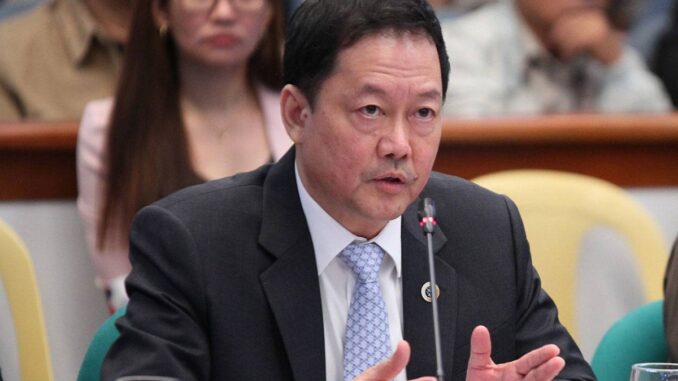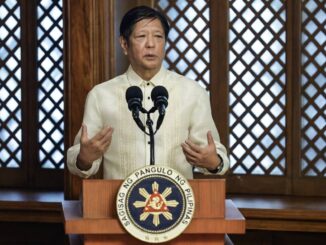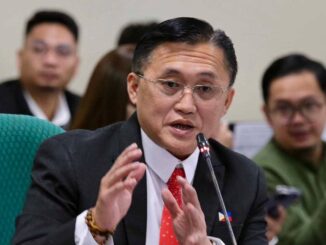
THE government has launched an extensive crackdown on illegal activities linked to the now-banned Philippine offshore gaming operators (POGOs), including the cancellation of fraudulently obtained birth certificates by foreign nationals and the forefeiture of illegally acquired real estate and other assets.
Solicitor General Menardo Guevarra emphasized on Wednesday that these efforts are critical for upholding laws governing immigration and property ownership. He highlighted the broader implications of POGO-related abuses, particularly the exploitation of legal loopholes and threats to national security.
The POGO industry, once hailed as a driver of economic growth, has increasingly become a hub for criminal activities, including human trafficking, money laundering, and tax evasion. Despite its initial promise of significant tax revenue and job creation, the sector has faced mounting scrutiny, leading to its gradual phaseout.
Solicitor General Menardo Guevarra. Photo by: J. Gerard Seguia
Amid the growing public outcry, the government began imposing stricter regulations on POGO operators in 2021. By 2023, President Ferdinand Marcos Jr. had expressed strong reservations about the sector, culminating in an executive order mandating the closure of noncompliant POGOs. Legislative efforts have since supported this phaseout, alongside intensified investigations into the industry’s ancillary activities.
The Office of the Solicitor General is tasked with ensuring justice extends beyond the immediate cessation of operations. This includes revoking fraudulent birth certificates, a practice exploited by foreign nationals linked to POGO operations. These individuals used falsified documents to access rights and privileges reserved for Filipino citizens, including property ownership.
Additionally, asset forfeiture has emerged as a focal point. Properties and assets acquired through illicit means or in violation of constitutional provisions on foreign ownership are now under scrutiny. The OSG is collaborating with the Department of Justice (DOJ) and the Anti-Money Laundering Council (AMLC) to trace, seize, and redistribute these assets to rightful claimants or return them to state custody.
Several high-profile cases are under government investigation. Authorities are probing syndicates that trafficked foreign workers into the country to staff POGO operations. Many victims reported exploitative working conditions and withheld wages.
Financial transactions linked to POGOs have raised red flags, with billions of pesos allegedly laundered through dummy accounts and shell companies. Foreign nationals connected to POGOs are suspected of using fraudulent birth certificates to acquire prime real estate, particularly in Metro Manila and other urban hubs. The Bureau of Internal Revenue (BIR) is actively investigating POGO operators and service providers for unpaid taxes, amounting to billions of pesos in lost government revenue.
“At this time, we have no definite figures on the aggregate value of these assets,” Guevarra said in a message to reporters.
“The first order of the day is to take possession of and control over them,” he added.
The initiative faces significant challenges, including tracing fraudulent documentation, navigating complex legal processes, and countering resistance from influential individuals and organizations tied to POGO activities.
However, the move has garnered widespread public support. Advocates see it as essential for curbing corruption and safeguarding national interests. Legal experts, meanwhile, stress the importance of ensuring due process in revoking documents and confiscating assets to avoid potential backlash and international criticism.
The anti-POGO crackdown forms part of the government’s larger strategy to address systemic issues that allowed the industry to flourish unchecked. Analysts argue that weak regulation during POGOs’ formative years created an environment ripe for abuse.
While concerns remain about the economic impact of phasing out POGOs — particularly on real estate and hospitality — officials contend that restoring law and order will yield long-term benefits that far outweigh short-term losses.
By targeting fraudulent documentation and illegally acquired assets, the administration aims to set a precedent for accountability while preserving the nation’s legal and economic integrity. As the crackdown continues, its success will hinge on sustained inter-agency collaboration, public support, and unwavering commitment to justice and transparency.





Be the first to comment